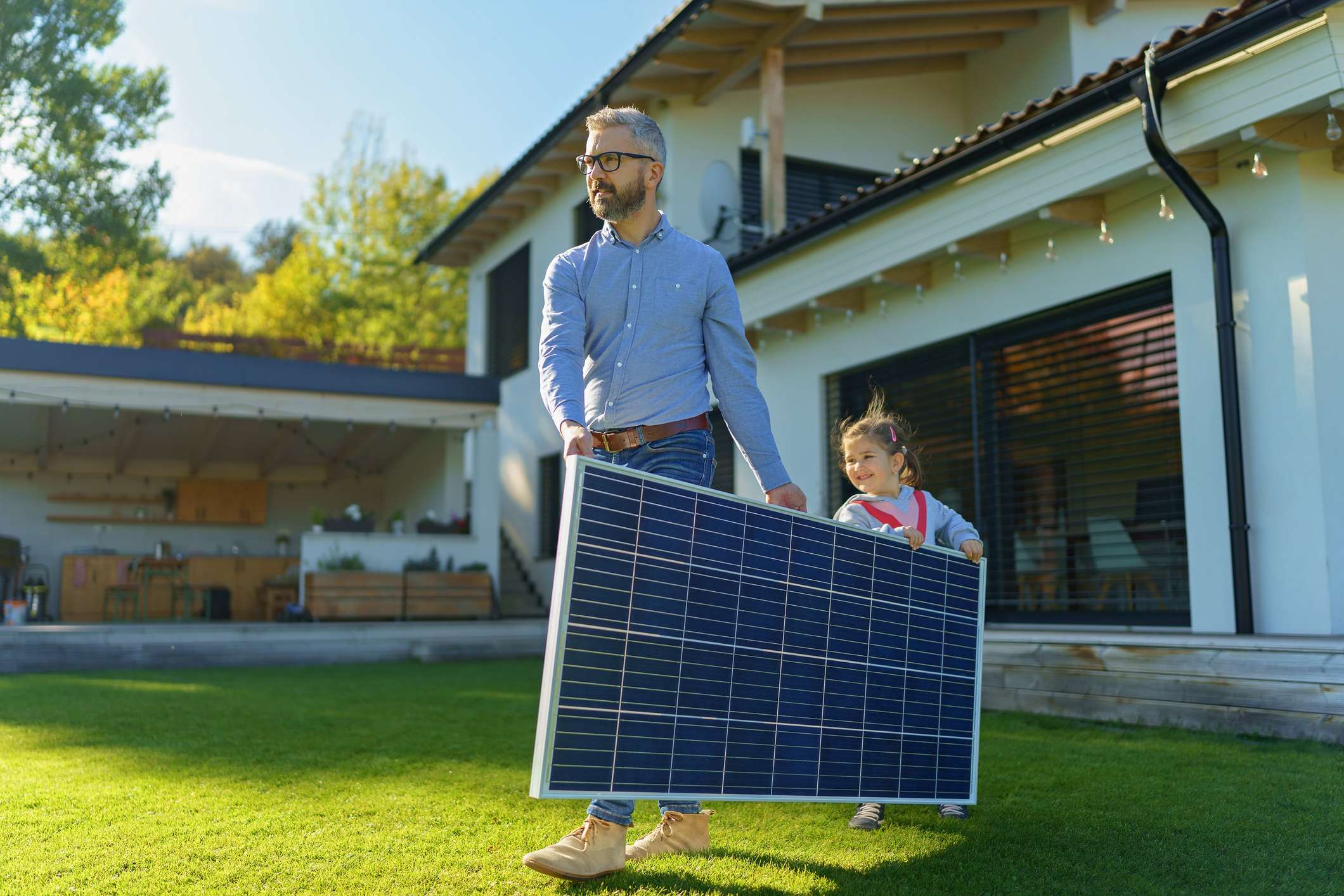More homeowners than ever are adding solar panels to their homes and for good reason. Going solar has many benefits for the environment and your wallet. But you may be wondering how to finance the transition to solar power.
There are a number of ways to pay for the installation of solar panels. If you’re considering an energy upgrade, Vermont Federal Credit Union can help you find the right financial solutions.
From solar loans to tax incentives, our experts will walk you through a few simple ways to switch to solar power in a cost-effective way.
Solar LOANS
Solar loans help you fund the up-front cost of installing rooftop solar panels. There are a few types of solar loans available, so you have options when it comes to deciding how to finance your solar panel installation. We’ll go over each of them so you can decide which one may be the right option for you.
Private Solar Loans
Many banks and credit unions offer solar loans that are similar to other types of personal loans, giving you the capital you need to finance home-energy upgrades. Oftentimes, solar loans are unsecured loans, meaning the lender does not hold your home or any other personal property as collateral.
The Solar Loan offered by Vermont Federal Credit Union comes with a competitive interest rate and a loan term of up to 20 years. We also offer low monthly payments that include special amortization for the investment tax credit. Plus, there are no pre-payment penalties.
If you’re interested in learning more, reach out to us and bring along your plan, cost estimate, and a recent tax bill. We’ll go over all the details of our Solar Loan so you can decide if it’s the right way to finance your solar upgrade.
GOVERNMENT SOlar Loans
You also have the option of securing government-backed financing. For instance, you can apply for financing through Fannie Mae’s HomeStyle Energy Program, which aids energy upgrades at an amount equal to or less than 15 percent of your home’s appraised as-completed property value.
The HomeStyle Energy Program allows you to finance the cost of your home-energy upgrades into either your home loan mortgage or home loan refinance. You can also use this loan to pay off other energy loans, such as Property Assessed Clean Energy (PACE) loans. This may enable you to save money through a lower-cost mortgage.
The FHA Energy Efficient Mortgage Program can be used in conjunction with your FHA-insured mortgage to finance your home-energy upgrades as well. This program allows you to finance upgrades in excess of your mortgage amount. The US Department of Housing and Urban Development states that “Under FHA’s Solar and Wind Technologies policy, [the] borrower can have a higher mortgage amount to pay for the cost and installation of new solar or wind energy system.”
Whether you’re an existing homeowner or looking to buy a new home for the first time, there are several types of solar loans that will help you finance energy-efficient upgrades.
Solar Leases
Solar leases are structured similarly to car leases. Instead of purchasing solar panels, you would lease them from a company at a fixed monthly rate. You would not own the solar equipment but would instead pay the leasing company for its use.
While solar leases help you avoid the up-front cost of solar equipment and installation, there are a couple of downsides. For example, since you don’t actually own the solar panels, they will not increase the property value of your home. You may also be unable to qualify for tax incentives available to those who invest in the purchase of residential renewable energy equipment and installation (more on this below).
However, just like a car lease, you may have the option to purchase your solar panels at the end of your lease agreement. Be sure to carefully review the terms of your agreement to determine whether this is a possibility.
Tax Credits
Regardless of whether you pay for solar panel installation on your own or choose to finance your solar-energy upgrade, you may qualify for tax credits.
When you invest in renewable energy for your home, whether it’s solar, wind, or geothermal power, you may qualify for a residential tax credit. According to the Internal Revenue Service (IRS), the Residential Clean Energy Credit amounts to 30 percent of the cost of new clean-energy property installed between 2022 and 2033.
This credit should help you save money when it comes time to file your taxes by reducing the amount you owe. Though the credit you receive cannot exceed the amount owed, you can carry over any unused portion of the credit into the following year.
To qualify for these credits, you must meet several basic requirements. You must claim the credit in the same tax year when the new clean-energy property is installed and use the home as a primary or secondary residence.
Are you ready to go green? If so, Vermont Federal Credit Union is ready to help. We can show you the benefits of upgrading to solar energy and how to do it in the most financially sound way. Give our team a call. We’ll figure out the right financing option for you so that you can harness the power of going solar.




-1-1.jpeg)



